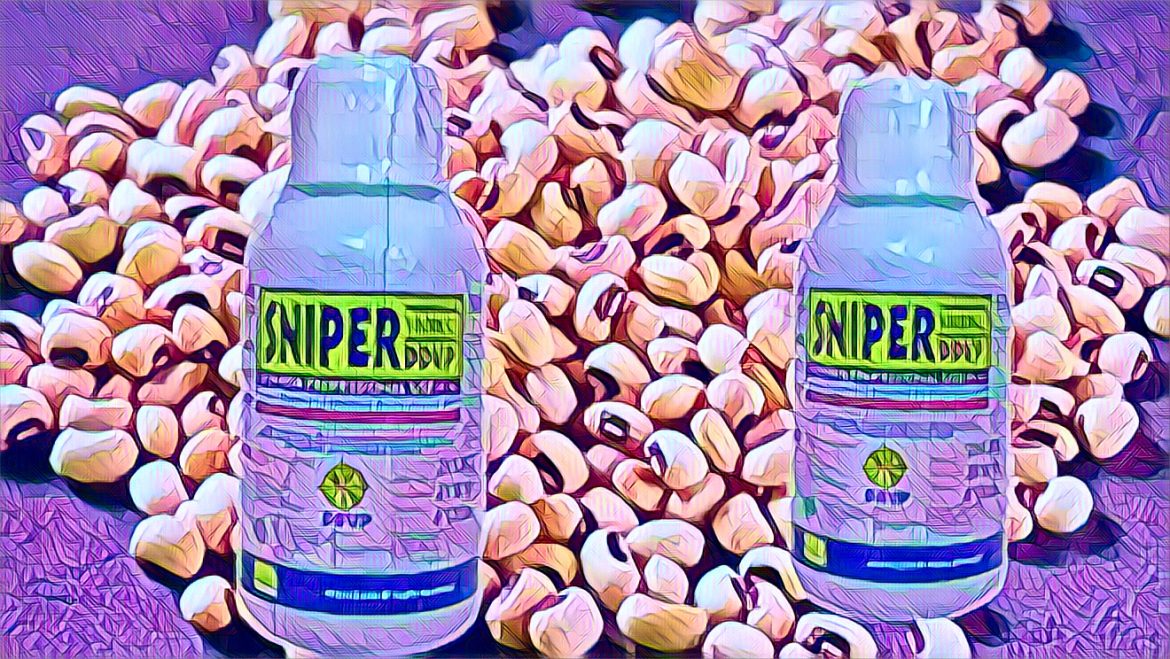The National Agency for Food and Drug Administration and Control (NAFDAC) has issued a stern warning to Nigerians about the dangers of using inappropriate chemicals for food preservation, particularly highlighting the risks associated with the chemical dichlorvos, commonly sold under the brand name Sniper. This warning was issued in response to a widely shared video that exposed the dangerous behavior and raised serious issues with public health.
Dichlorvos, a chemical traditionally used in pest control, has seen illicit application in preserving food items like beans, stockfish, and crayfish. NAFDAC’s Resident Media Consultant, Sayo Akintola, emphasized the severity of this issue in a recent statement, noting that the agency had already banned the sale of Sniper in small volumes (100 ml or less) since 2019, and restricted larger volumes (one liter) to certified agrochemical outlets due to its toxicity.
Prof. Mojisola Adeyeye, Director General of NAFDAC, expressed deep concern over the reckless misuse of dichlorvos, citing its profound short-term and long-term health impacts. These include developmental abnormalities in offspring, memory loss, reduced fertility, and potential carcinogenic effects. Prof. Adeyeye urged traders and food handlers to cease the use of unauthorized chemicals on consumables, underlining the grave health risks involved.
Dr. Rametu Momodu, Director of Veterinary Medicine and Applied Products at NAFDAC, also reiterated the agency’s stance, explaining that while certain pesticides are approved as fumigants, none should be applied directly to food items. She detailed the disturbing symptoms that can result from consuming foods contaminated with dichlorvos, such as dizziness, vomiting, difficulty breathing, tremors, convulsions, and in severe cases, coma and death.
Momodu highlighted that washing the food does not eliminate the risk, as the pesticide residues penetrate deep into the food, rendering them unsafe. She advised against the use of washing as a deceptive solution and encouraged adherence to manufacturer guidelines for the use of dichlorvos strictly as a field crop treatment or a fumigant.
Further addressing consumer safety, Momodu advised the public to be vigilant and avoid purchasing food items from vendors known to engage in these unsafe practices. She urged the reporting of such cases to NAFDAC for appropriate action. Prof. Adeyeye pointed out safer alternatives for food preservation, such as bio-pesticides, which pose less risk compared to dichlorvos. She also cautioned that foods remaining unspoiled for unusually long periods might be a sign of pesticide contamination rather than a testament to freshness, especially if not stored under refrigeration.
Through a number of measures, such as public sensitization sessions intended to limit the direct application of dichlorvos on grains and foodstuffs, NAFDAC has taken the lead in stopping this harmful practice. The organization also carries out strict laboratory testing to guarantee that pesticide residual levels stay within safe bounds, which is necessary for exports as well as domestic use.
The organization is still devoted to upholding international standards and gradually eliminating the use of pesticides that are banned in other nations because of their established harm. Adeyeye underlined the urgent necessity of switching to safer alternatives while acknowledging the difficulties farmers experience as a result of these restrictions. She also clarified that NAFDAC has given the media thorough lists to discredit misleading information regarding banned substances being dumped in Nigeria, in response to misconceptions raised by the media.


